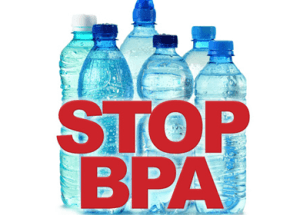Q: We’re trying to get pregnant. I’ve heard so much about how chemicals in plastics can harm a fetus – and cause a child to have learning problems and illnesses. So, I want some advice on how to protect my baby. – Alice W., Milwaukee
A: The latest info on these chemicals indicates that exposure to bisphenol A (BPA) and its cousin BPS in the womb or as an infant increases the risk of childhood asthma and learning disorders. It does this by disrupting hormones and changing the function of a gene important to learning in kids (and adults). Even more unsettling is the fact that small amounts of BPA seem to interfere with brain development by blocking the action of a protein that instructs neurons where to go.
So, what can you do to protect your future child? First, you want to reduce YOUR exposure to BPA.
1. Check the plastic ID code on the bottom of polycarbonate bottles and packages: No. 7 means it could contain BPA.
2. Don’t take thermal cash register receipts. Touching the receipt and then your mouth is the No. 1 way to end up with BPA and BPS in your system.
3. Avoid canned foods: They’re lined with resin that contains BPA, unless marked BPA-free.
 4. Don’t microwave polycarbonate plastics (hard, clear, lightweight). BPA can leach into your food. Avoid putting them in the dishwasher, too.
4. Don’t microwave polycarbonate plastics (hard, clear, lightweight). BPA can leach into your food. Avoid putting them in the dishwasher, too.
5. When your child is born, follow the same precautions regarding bottles, food containers and toys. Wash your hands before preparing food or touching your baby – especially if you have recently handled a receipt.
– Dr. Michael Roizen & Dr. Mehmet Oz
© 2013 Michael Roizen, M.D. and Mehmet Oz, M.D. Distributed by King Features Syndicate, Inc.

